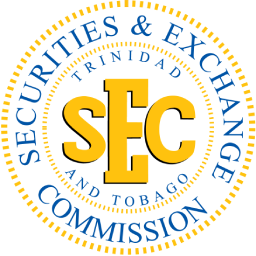Trinidad and Tobago Securities and Exchange Commission
Questions posed at AML-CFT Guidelines Launch 2012
| No. | Query | Commission’s Response |
| 1 | How does the Commission intend to reconcile the 18 month period for retroactive due diligence with the approved 5 year period established by CBTT? | The 18 month period was approved by the Board of Commissioners after due consideration of the work to be undertaken and the size of the market. The Commission understands that the 5 year period was suggested but has not been approved by CBTT. The Commission is open to consulting with other regulators and welcomes feedback from the market and will, if necessary review the time frame. |
| 2 | Does the TTSEC have to approve a Compliance Officer and a Compliance Program which has already been approved by CBTT and FIU? | The Commission does not approve compliance programs. The FIU will however consult with the Commission before approving a program if the entity is registered under the SIA.If a compliance officer has already been approved by CBTT, then the Commission ought to be informed of this and the application form available on the website should still be completed and filed with the Commission for our records. |
| 3 | Will the definition of PEPs be extended in the Financial Obligation Regulations 2010 (FORs) and the TTSEC guidelines given the changes in FATF Recommendations? | The TTSEC guidelines already incorporate domestic PEPs in keeping with the Revised FATF recommendations.The Commission cannot say what amendments will be made to the FORs as this falls within the purview of the Minister of Finance. |
| 4 | How will TTSEC treat with “sanctioned persons?” | If it is discovered that a market actor is doing business with any person who appears on a list of “designated entities” the Commission will treat this as a case of extremely high risk and will take measures to examine whether this market actor has done so as a result of a lapse in their internal |
| No. | Query | Commission’s Response |
| controls (failure to identify the client as a sanctioned person) or whether this is a deliberate action. In either case the matter will be reported to the relevant authorities who can take criminal action after an investigation by the Commission. | ||
| 5 | Is the Commission going to supply a list of local PEPs? | No, the Commission will only provide guidance as to what considerations a market actor should take when determining whether a person is PEP. Should a market actor have reason to believe that a client is PEP, enhanced due diligence ought to be undertaken. In cases where there is doubt, the FIU ought to be consulted. |
| 6 | Can a group compliance officer be approved as a compliance officer for a market actor? | Section 3(1) of the Financial Obligations Regulations 2010 states that a Compliance Officer must be a “manager or official employed at the managerial level” of the financial institution. Therefore, a Compliance officer must be employed by the entity that is registered with the Commission, not a parent company. |
| 7 | If after the 18 month period expires all Retroactive due diligence (RDD) is not completed, does the market actor file a suspicious activity report (SAR)? | If the market actor is encountering difficulty during the Customer due diligence (CDD) process it may be necessary to file a SAR. Such instances include where proper customer identification cannot be provided or verified or where an existing client is reluctant to provide information regarding source of funds etc. |
| 8 | When considering an applicant for the position of Compliance Officer, what training or qualifications would be an asset? | The Commission does not recommend or endorse any particular qualification. The level of qualifications or experience needed for a compliance officer will vary depending on type and size of the market actor. The Commission will consider all applications on a case by case basis. |
| 9 | What is the process used for approving Compliance programs? | Compliance programs are approved by the FIU. However, in relation to market actors registered under the SIA, there will be consultation between both regulators. |
| 10 | What is the role of the TTSEC vs the TTSE in relation to ensuring compliance with the AML-CFT legislative framework? | As a self-regulatory organisation, the TTSE can take measures to ensure that their members are compliant with the laws of Trinidad and Tobago. However, the Commission is the designated “Supervisory Authority” and therefore bears the responsibility in law to ensure compliance. |
| No. | Query | Commission’s Response |
| 11 | Based on the reviews undertaken by the TTSE, is the Commission satisfied that market actors have robust compliance programs? | The Commission does not have information regarding the Compliance inspections carried out by TTSE. |
| 12 | With small size firms with a very small number of senior staff, how can a compliance officer and internal auditor be appointed? | In the case of institutions with very few members of staff, internal reviews should still be undertaken by someone other than the compliance officer. In the case of sole persons who are registered with the Commission, the internal audit process will primarily consist of a review of recommendations made by the external auditor. The external audit process will be even more important in such cases where there are no senior members of staff to conduct independent internal reviews. |




